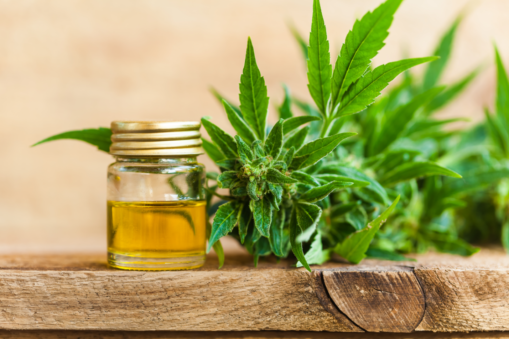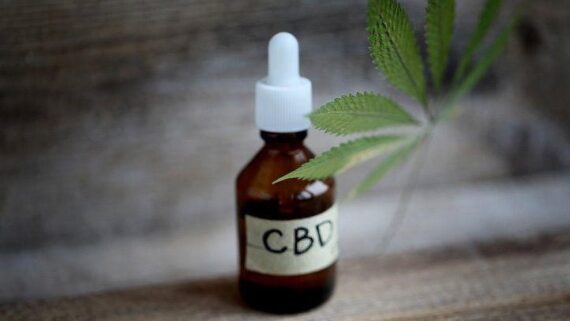- Your cart is empty
- Continue Shopping
How is Hemp CBD different from Cannabis CBD?
- Cannabis Industry
- Posted on
-
by John
- 0 comments

CBD is emerging as a wonder drug hailed for its medicinal values. Everyday we hear of positive reviews from patients who used Cannabidiol (CBD). However, not all CBD products are the same. Frequent users of CBD get to know the product that best suits them, usually through experimentation. If you are someone who is looking to try CBD, then it’s important for you to understand what differentiates Cannabis CBD from Hemp CBD.
Currently, most CBD comes from hemp – a plant that has no illegal connotations. But there is another source of CBD, which is marijuana. There are many differences between the two, as well as similarities. Let us look at some of the most significant differences between Marijuana CBD and Hemp CBD.
About CBD
Cannabidiol (CBD) has become a popular medicinal product being sold in pharmacies and stores both as prescribed medicine as well as an active ingredient in several OTC products. This CBD is derived from cannabis plants that naturally produce a variety of active compounds.
CBD is derived from two kinds of cannabis plants: marijuana(cannabis) or hemp.
CBD is non-intoxicating and is one of the 540 phytochemicals found inside the Cannabis sativa (C. Sativa) plant. THC, or delta-9-tetrahydrocannabinol, is the compound that gives a “high”. It is actually the difference between THC levels found in hemp and cannabis that creates many legal complications.
CBD is used by patients to deal with a myriad of mental and physical issues that include nausea, addiction, depression, and pain. While research studies haven’t firmly established CBD’s effectiveness for these ailments, evidence suggests that CBD interacts with the endocannabinoid receptor system, which is a signaling mechanism – that trigger a positive effect.
Both marijuana and hemp belong to the same genus, Cannabis sativa, and both plants appear somewhat alike. But there are significant variations that exist within the species. The defining difference between hemp and marijuana is their psychoactive component: tetrahydrocannabinol, or THC. Hemp contains 0.3 per cent or less THC, which means that hemp-derived products do not have enough THC to produce that “high” traditionally associated with marijuana.
Isolate vs full-spectrum CBD
CBD isolate products include solely the CBD molecule, without any associated terpenes, THC or other cannabinoids. For patients suffering from certain medical conditions or people who wish to stay away from THC, CBD isolate might be a better choice. Alternatives to CBD isolate include whole-plant CBD oil, full-spectrum CBD oil as well as broad-spectrum CBD oil.
“Full-spectrum CBD oil” refers to the extraction of the constituents including terpenes and cannabinoids.
Full-spectrum CBD can be extracted from marijuana or hemp, and could provide enhanced therapeutic benefits called the entourage effect. The entourage effect is essentially the synergy that has been observed when cannabinoids are combined with other minor cannabinoids and terpenes. CBD basically enhances the effects and outcomes of other cannabinoids and terpenes. The overall effect is more pronounced in combination rather than in isolation, helping prolong or enhance the effect.
Cannabis CBD vs Hemp CBD

Cannabis and hemp plants are rich in both CBD and THC and additionally have more than 540 other compounds. The major difference between hemp and cannabis plants lies in the quantity of each substance it contains. Cannabis has more THC, but less CBD. Hemp has more CBD and less THC.
The pertinent point to note is that the benefits of CBD are the same regardless of whether it’s Cannabis derived CBD or hemp-derived CBD. The most common adverse effects, like upset stomach, fatigue, or feeling anxious, are the same for both. This is because the chemical structure of CBD isn’t influenced by the plant from which it is derived.
However, the quantity of CBD extracted does vary based on where it is extracted from. Hemp plants are the ideal source of CBD and are therefore the most lucrative choice for companies with the least risk of legal implications.
The major distinction between hemp CBD and cannabis CBD lies in their legal interpretation. As per the new 2018 Farm Bill (USA), products made from hemp that meet the legal requirements of hemp are legal in major parts of the USA, barring a few states. Plant-based products that contain higher concentrations of THC (>0.3%) are not permitted in accordance with this law. Hence, the United States Drug Enforcement Administration (DEA) has a policy of identifying any CBD products that contain more than 0.3% THC as a Schedule I drug in states where recreational consumption of cannabis isn’t legally permitted.
Hemp CBD
Hemp is a particular type of Cannabis sativa. Hemp has been grown by people for centuries and used to create rope, clothing, sails, food and more. Industrial hemp has a similarly long tradition throughout the United States. Thomas Jefferson, the 3rd president of the United States, was the first to cultivate it.
The 2017 Farm Bill considers C. Sativa plant with lower than 0.3% THC to be hemp, also known as industrial hemp. Hemp plants contain minimal levels of THC. But certain varieties of hemp products like tinctures, capsules or gummies may still induce euphoria. Usually manufacturers use the flowers and leaves of the hemp plant to create CBD products.
Hemp-derived CBD oil and products are made from industrial hemp, which is mostly grown to produce fibre and seeds. These plants look somewhat different from marijuana plants. They tend to be thin and have less leaves.
Marijuana CBD

There are three common cannabis varieties: C. Indica, C. Sativa, as well as C. Ruderalis. There’s also a variety of hybrid plant which combine the three varieties. Cannabis plants with these characteristics have more concentration of THC than hemp plants. As a result they have lower concentration of CBD than hemp plants.
Marijuana CBD is derived from cannabis plants which have dense, lush foliage. Their flowers have intoxicating properties. U.S. law refers to marijuana as plants that have more than 0.3% THC besides containing CBD.
Conclusion
Hemp and cannabis are different – hemp can contain THC, but it doesn’t have nearly the same concentrations as cannabis. Of course, knowing that doesn’t tell you which kind of CBD you should use. There are many variables to take into consideration when deciding on a specific CBD product. You’ve got to think about how long it takes for the CBD product to take its effect; and how long it takes for those effects to taper off (if they ever do) and whether that fits in with your lifestyle or schedule.
